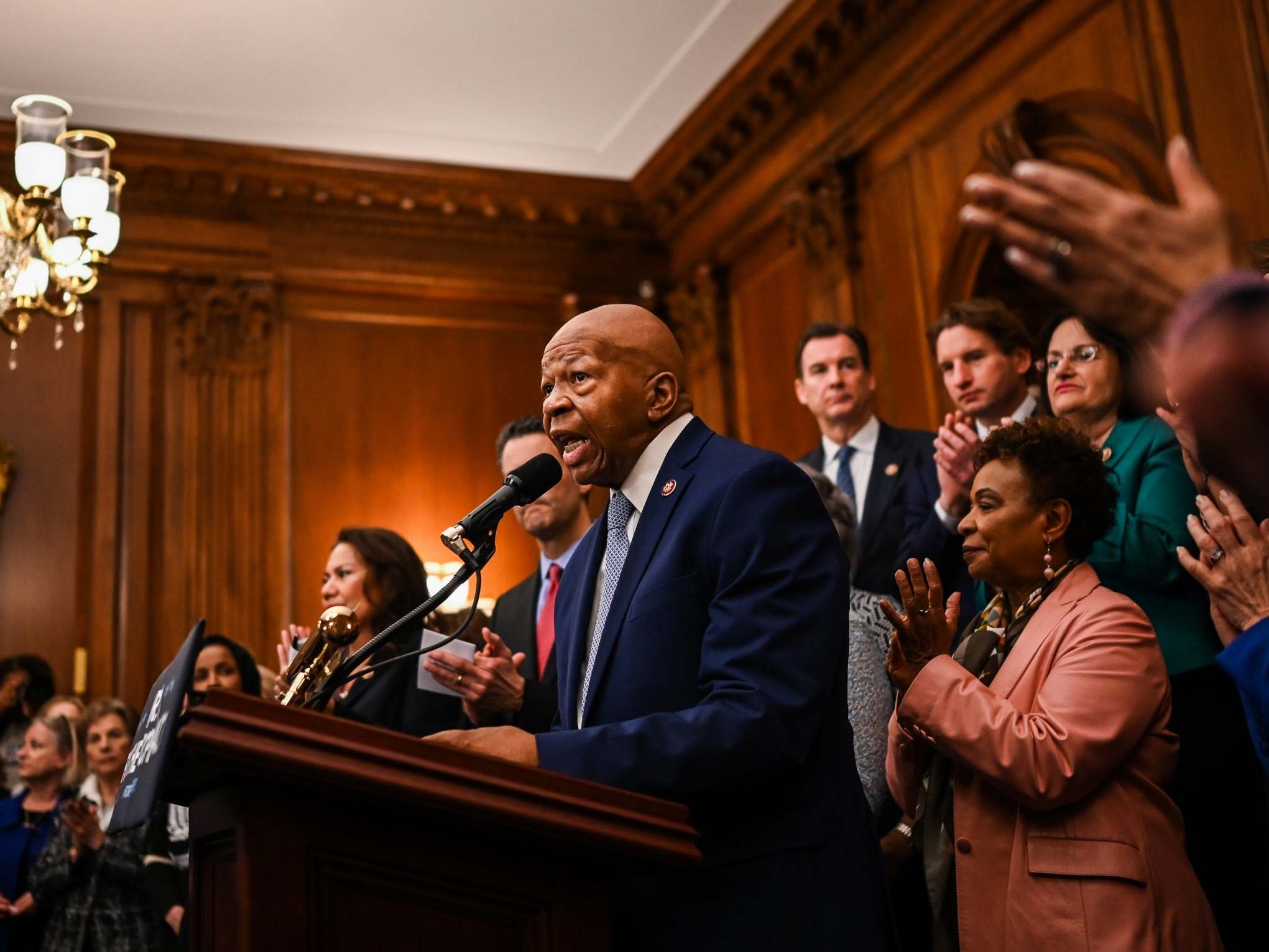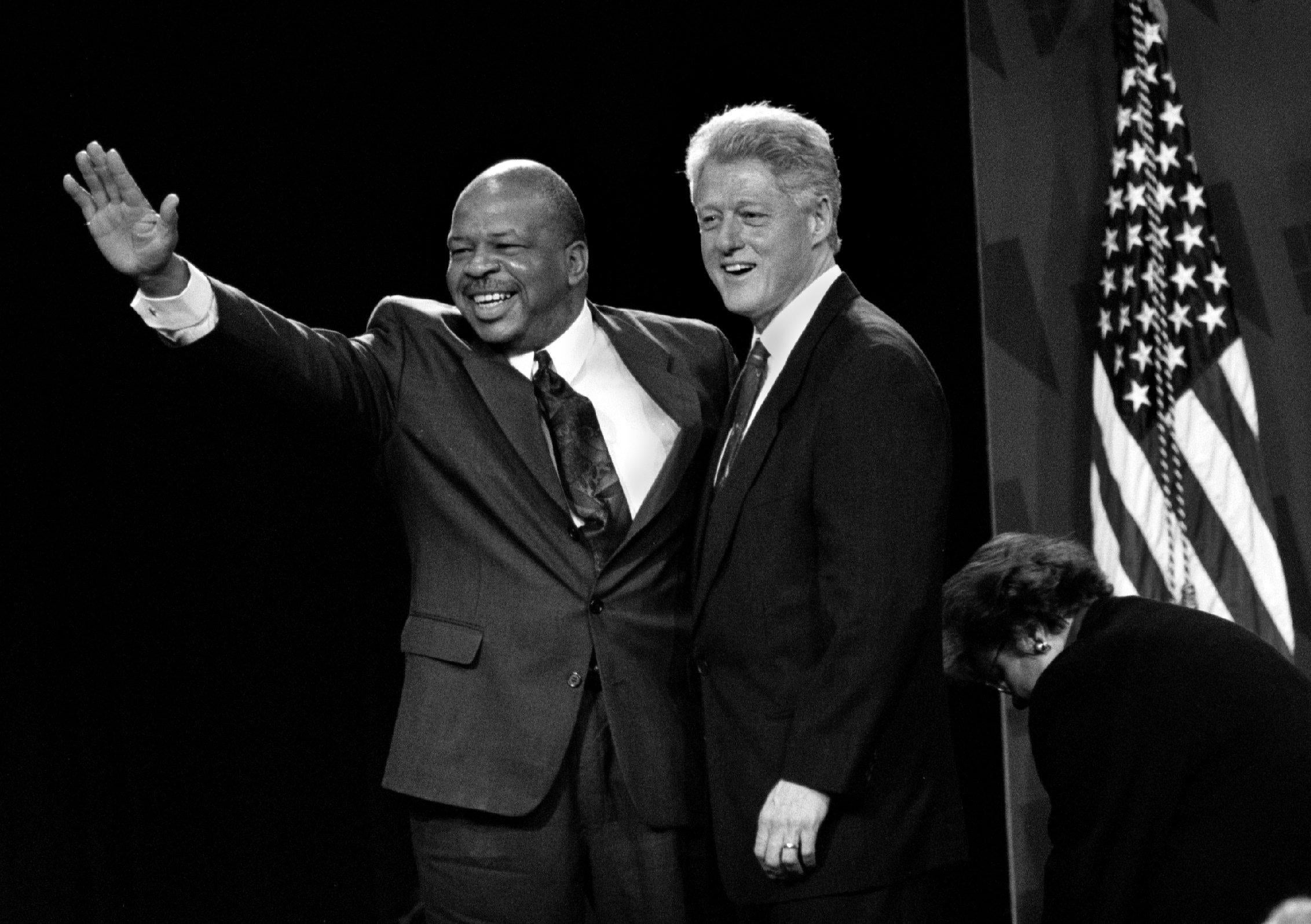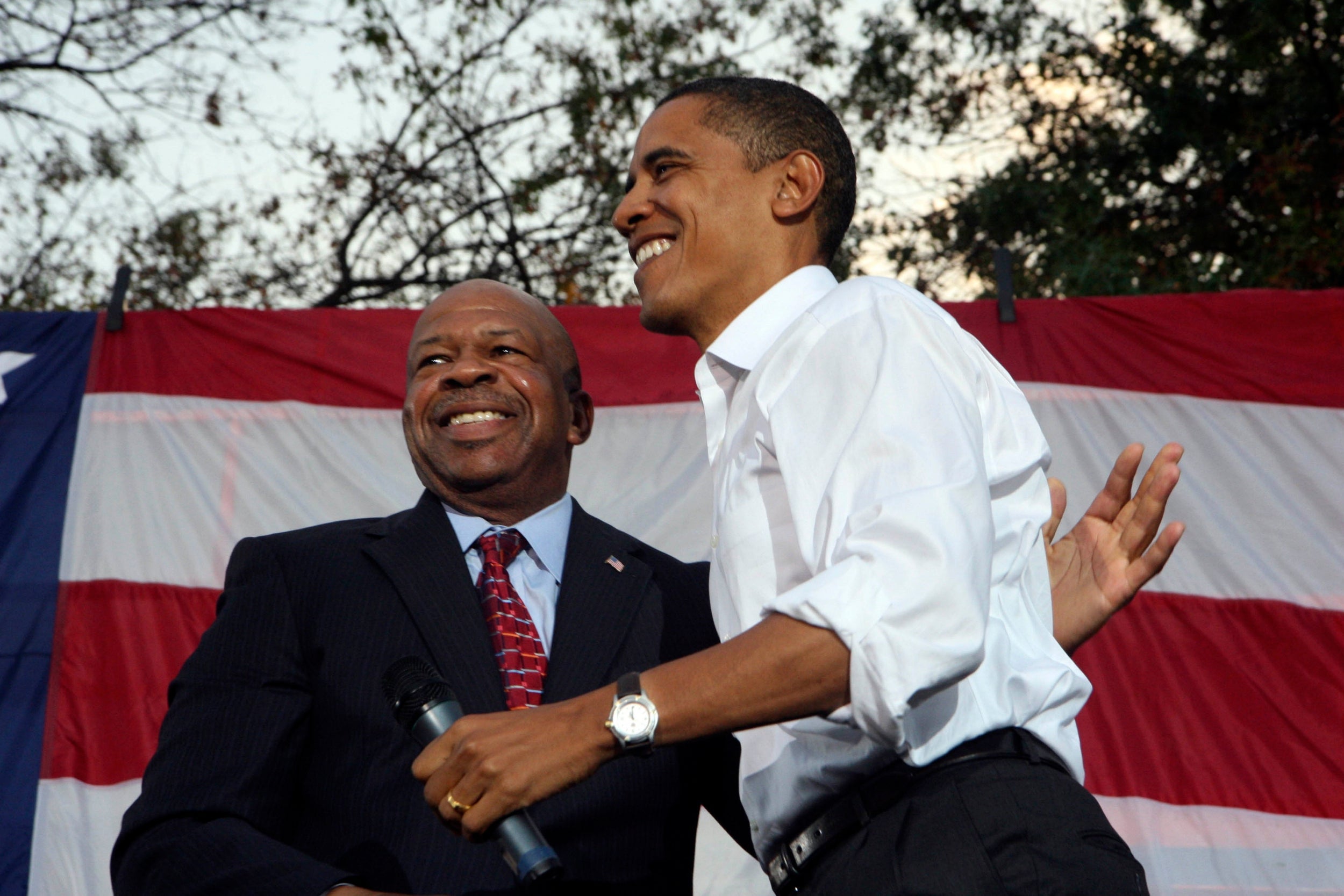Elijah Cummings: US politician who forcefully opposed Trump in congress
His principled stand on highly charged issues won him many admirers, and he was a key figure in the Trump impeachment inquiry. The politician wanted to be remembered for standing up for what he believed was right

Your support helps us to tell the story
From reproductive rights to climate change to Big Tech, The Independent is on the ground when the story is developing. Whether it's investigating the financials of Elon Musk's pro-Trump PAC or producing our latest documentary, 'The A Word', which shines a light on the American women fighting for reproductive rights, we know how important it is to parse out the facts from the messaging.
At such a critical moment in US history, we need reporters on the ground. Your donation allows us to keep sending journalists to speak to both sides of the story.
The Independent is trusted by Americans across the entire political spectrum. And unlike many other quality news outlets, we choose not to lock Americans out of our reporting and analysis with paywalls. We believe quality journalism should be available to everyone, paid for by those who can afford it.
Your support makes all the difference.Elijah Cummings was a Democratic congressman from Maryland who gained national attention for his principled stands on politically charged issues in the house, his calming effect on anti-police riots in Baltimore, and his forceful opposition to the presidency of Donald Trump.
Cummings, who has died aged 68, was chair of the House Oversight and Reform Committee and a leading figure in the Trump impeachment inquiry. The first two years of the Trump administration, 2017 and 2018, were agonising for Cummings, who was battling ill health, including complications of heart surgery, as well as political frustration.
The politician branded his efforts to work with Trump and members of the GOP majority in the house fruitless. He said that at the luncheon after Trump’s inauguration, and at other several subsequent encounters, he had urged the president to pursue policies that could unite the country and burnish his legacy. After a few promising meetings, the congressman said he stopped hearing from Trump.
“Perhaps if I knew then what I know now, I wouldn’t have had a lot of hope,” Cummings later remarked. “He is a man who quite often calls the truth a lie and calls a lie the truth.”
As ranking Democrat on the Oversight Committee, Cummings became a leading voice against the Trump administration’s efforts to add a citizenship question to the 2020 census, a change that critics contended would discourage participation by documented and undocumented immigrants alike.
He was also a forceful opponent of an immigration policy that separated thousands of children from their parents after they illegally crossed the southern US border. He described the Trump White House as inhumane in its use of “child internment camps”.
In turn, the president went on a Twitter tirade against Cummings and described his majority-black Baltimore district as a “disgusting, rat- and rodent-infested mess” and suggested the congressman focus his efforts on cleaning up “this very dangerous and filthy place”.
Cummings’ response was not to dignify the attack, instead telling an audience at the National Press Club in Washington: “Those at the highest levels of government must stop invoking fear, using racist language and encouraging reprehensible behaviour. As a country, we finally must say that enough is enough. That we are done with the hateful rhetoric.”

After Democrats won control of the house in the November 2018 midterm elections, Cummings was elevated to chair of the Oversight Committee, a position he used to sound further alarms. He spearheaded probes into security clearances issued by the White House over the objections of career officials and payments made during the 2016 campaign to silence women who claimed to have had affairs with Trump.
Elijah Eugene Cummings was born in Baltimore in 1951. His father worked at a chemical factory, and his mother at a pickle factory and later as a maid while raising seven children. Both parents came from sharecropping families in South Carolina. Although they struggled to feed their family, his parents would can apples and peaches and give half the preserves to people in need.
Baltimore was racially fractured in the 1950s and 1960s and, aged 11, Cummings worked to integrate a local swimming pool while being attacked with bottles and rocks. Perry Mason, the popular TV series about a fictional defence lawyer, inspired him to enter the legal profession.
The proprietor of a Baltimore drugstore where Cummings worked paid his application fee to Howard University and, during Cummings’ time as a Howard student, regularly sent him $10 with a note that read: “Hang in there.”
At Howard, he served as student government president, and received his bachelor’s degree in political science in 1973. Three years later he received a law degree from the University of Maryland and went on to practice law for nearly two decades.
He also helped law students to develop their oral and writing skills as chief judge on the Maryland Moot Court, a competition in which students submit briefs and present oral arguments in a hypothetical appellate case.
In the Maryland House of Delegates, where Cummings served from 1983 to 1996, he championed a ban on alcohol and tobacco ads on inner-city billboards in Baltimore – the first prohibition of its kind in a major US city.
On Capitol Hill, Cummings was among the minority of house members and senators who voted in 2002 against authorising a military invasion of Iraq. President George W Bush’s administration, in the aftermath of the 9/11 terrorist attacks, claimed that Iraq continued to possess and develop weapons of mass destruction. Cummings said there was not sufficient evidence of such weapons to “send our young people off to war and thereby place their lives in harm’s way”, an opinion supported by subsequent investigations.

Also in 2002, Cummings was elected chair of the Congressional Black Caucus, a position he used to push for increased funding for public education and the Head Start programme.
A member of New Psalmist Baptist Church in Baltimore, Cummings said he was driven by his faith and secure in his conviction that history would recognise his resolve to stand up for what he believed was right.
“In the city of Baltimore, there are over a thousand monuments, and not one monument is erected to memorialise a critic,” he once said in a speech. “Every one of the monuments is erected to memorialise one who was severely criticised.”
His first marriage, to Joyce Matthews, ended in divorce after a long separation. In 2008 he married Maya Rockeymoore, a policy consultant and chair of the Maryland Democratic Party. He is survived by Rockeymoore and three children.
Elijah Cummings, US politician, born 18 January 1951, died 17 October 2019
© Washington Post
Join our commenting forum
Join thought-provoking conversations, follow other Independent readers and see their replies
Comments